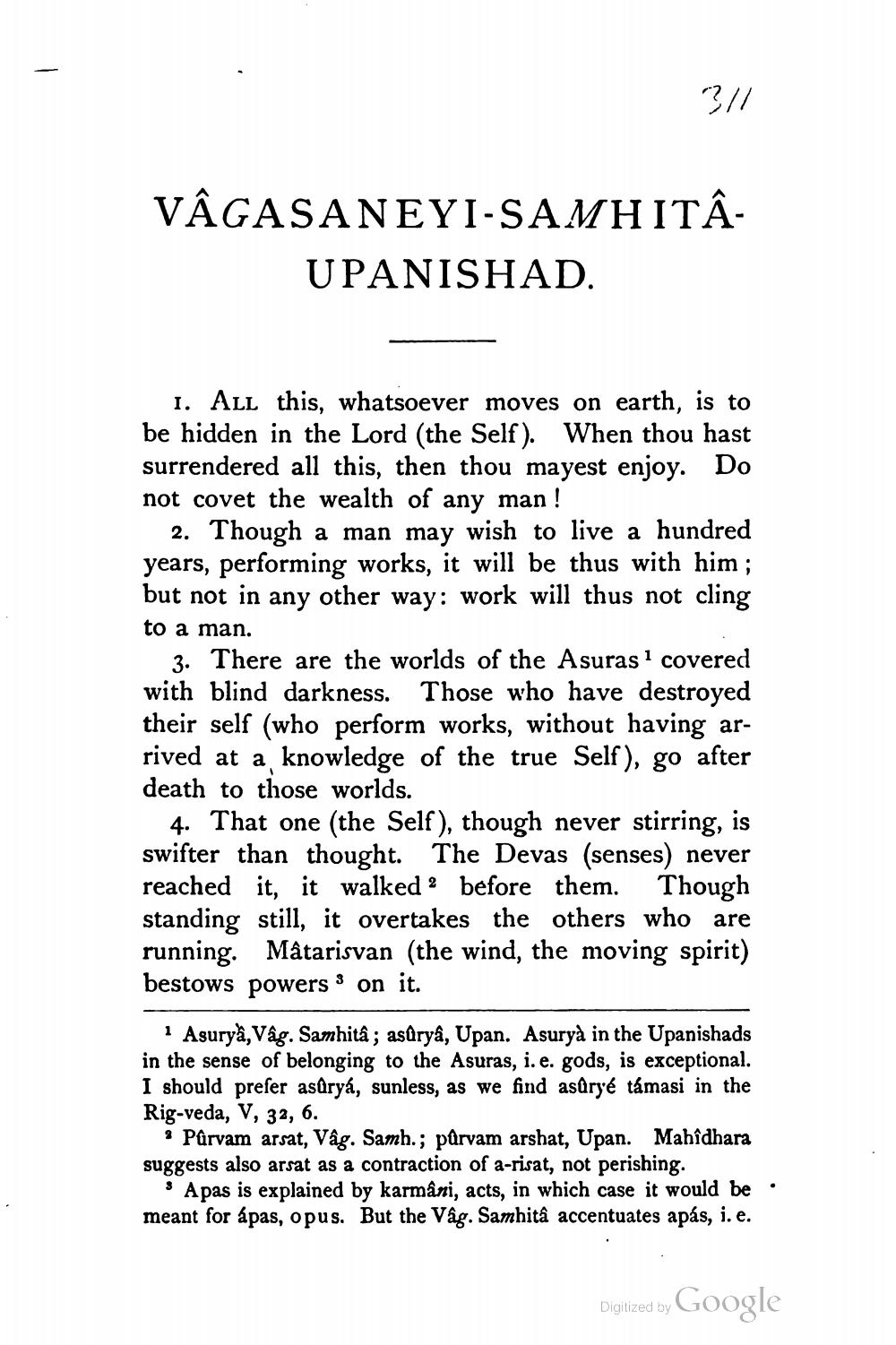________________
311
VÂGASANEYI-SAMHITÂ
UPANISHAD.
1. All this, whatsoever moves on earth, is to be hidden in the Lord (the Self). When thou hast surrendered all this, then thou mayest enjoy. Do not covet the wealth of any man!
2. Though a man may wish to live a hundred years, performing works, it will be thus with him ; but not in any other way: work will thus not cling to a man.
3. There are the worlds of the Asuras covered with blind darkness. Those who have destroyed their self (who perform works, without having arrived at a knowledge of the true Self), go after death to those worlds.
4. That one (the Self), though never stirring, is swifter than thought. The Devas (senses) never reached it, it walked a before them. Though standing still, it overtakes the others who are running. Mâtarisvan (the wind, the moving spirit) bestows powers 3 on it.
Asurya, Vâg. Samhita; asûrya, Upan. Asurya in the Upanishads in the sense of belonging to the Asuras, i.e. gods, is exceptional. I should prefer asûrya, sunless, as we find asûryé támasi in the Rig-veda, V, 32, 6.
Purvam arsat, Våg. Samh.; purvam arshat, Upan. Mahîdhara suggests also arsat as a contraction of a-risat, not perishing.
Apas is explained by karmâni, acts, in which case it would be meant for ápas, opus. But the Vâg. Samhità accentuates apás, i.e.
Digitized by Google




